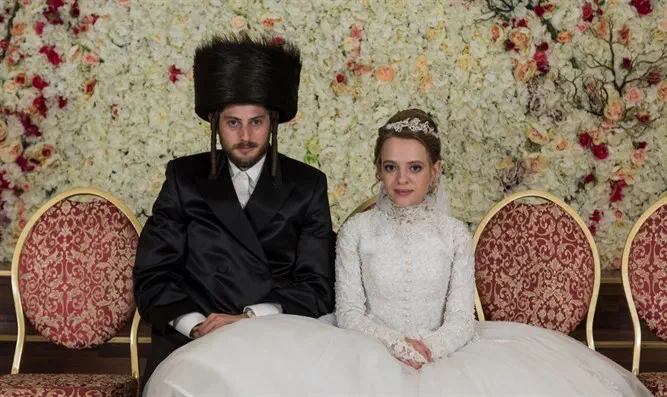Judge Ruchie (Rachel) Freier from Brooklyn New York is a Kings County Civil Court Judge, a volunteer paramedic and director of Ezras Nashim, the all women’s Basic Life Support First Response Agency.
Freier joined a special video online discussion and related to the Netflix "Unorthodox" mini-series, which brings the story of a Hasidic young woman from New York who decides to leave her family, home and way of life. The video session was produced by JLE (Jewish learning exchange), a Jewish outreach organisation in London.
Judge Freier wrote about the series in an op-ed in the "Vos Is Neias" website.
"A good friend from the broader Jewish community who saw the movie called me and asked “Are all Hasidic marriages arranged and begin loveless?” Frieier writes, "This propelled me to watch it and determine its accuracy".
Freier noted that the production is fiction, but is based on a memoir written by Deborah Feldman with the same name.

"Perhaps it reflects the experience of one woman", Freier wrote, "and in doing so unwittingly or intentionally depicts Hasidic men as either naïve or shysters and women as subjugated, unloved, uneducated, unhappy and without opportunity".
Regarding the topic of education, Judge Freier explained that there have been serious changes during the past twenty years. "Educational opportunities for Hasidim have changed dramatically", she wrote. "Colleges that catered to the needs of Hasidim began opening their doors. Classes, assignments and exams that respect the Shabbos and Jewish Holidays, and separate classes for men and women were introduced".
Regarding the field of marriage and intimacy and the message in the series as if everything in that field is forced upon the woman, Freier clarified: "While different families have different customs for the duration and number of meetings, and the period between the engagement and wedding; in all families the girl has the last word; the engagement cannot be finalized without her express consent".
"The scenes of the mother in law meeting in the supermarket and subsequent meddlesomeness in her son’s intimacy, as well as the Kallah teacher were ridiculous exaggerations and condescending", Freier noted. "The underlying message we aim to imbue is that if you want to be treated like a king, treat your wife like a queen and vice versa".
"Most disturbing were the inaccurate scenes of marital intimacy, more akin to spousal abuse than Hasidic relationships", the judge wrote. "While spousal abuse exists in every society, I grew up seeing my parents and grandparents address each other with warm affection in the privacy of our homes. The bedroom scenes in the movie were not even in accordance with Jewish Law, the Halacha".
Freier noted that "ironically" in a scene in which the main character's grandmother suffers a heart attack, the Hasidic female EMTs in purple vests that were seen responding to the call and performing CPR were dressed to resemble the volunteers of Ezras Nashim, the organization that Freier founded. Allthough, as Freier explained, "that too is inaccurate as Ezras Nashim continues to confront incredible challenges including launching a branch in Williamsburg".
"While our community embodies magnanimous kindess, Chessed", Freier explained, "there are areas where change is needed — real change will come from within, not from those who leave".
